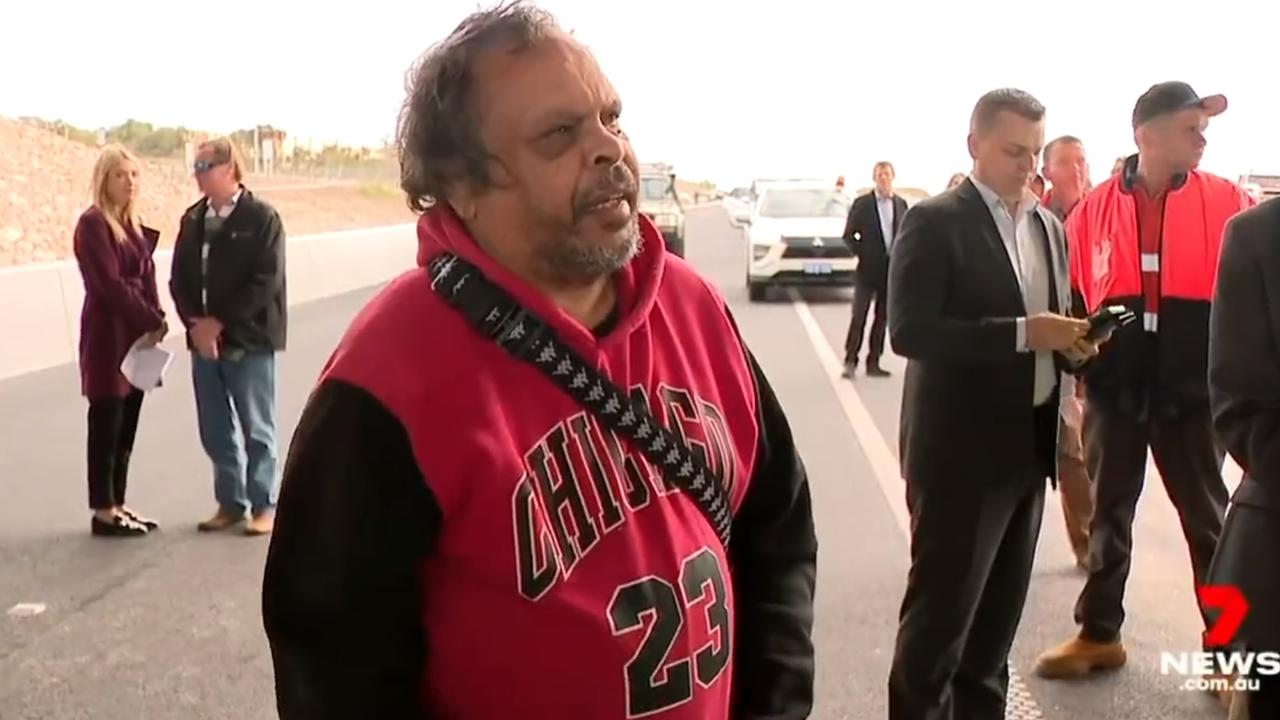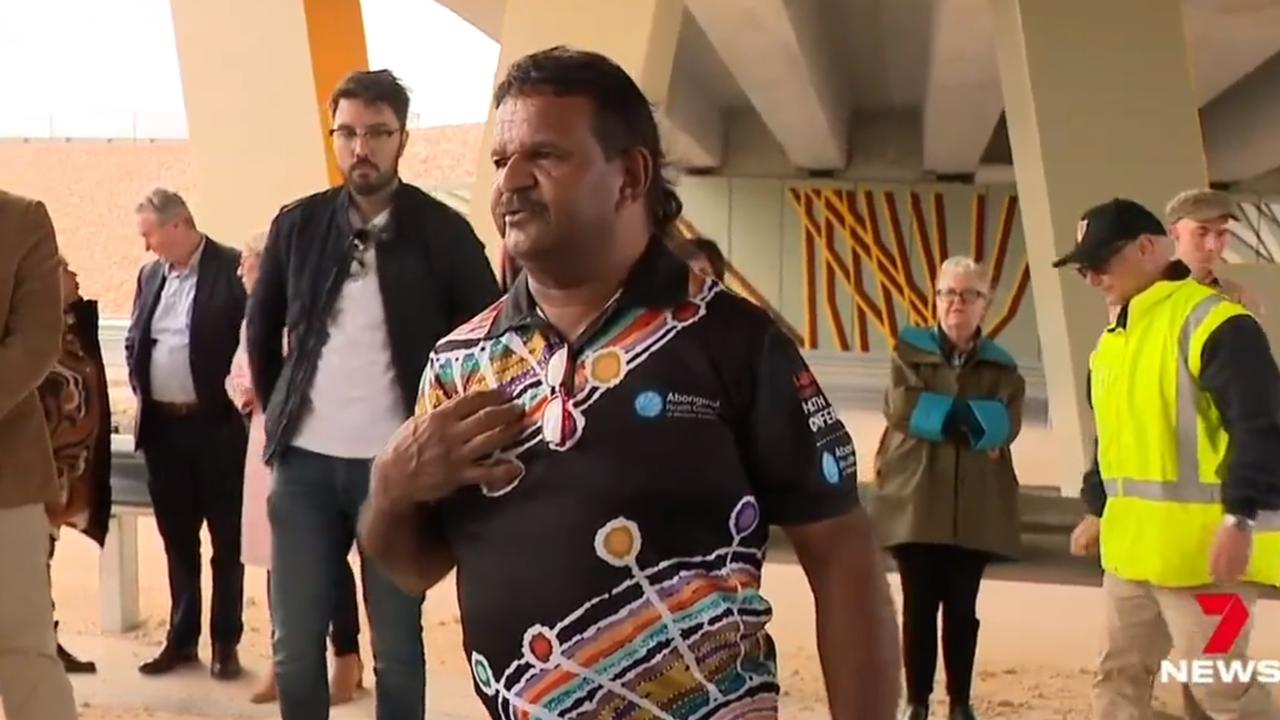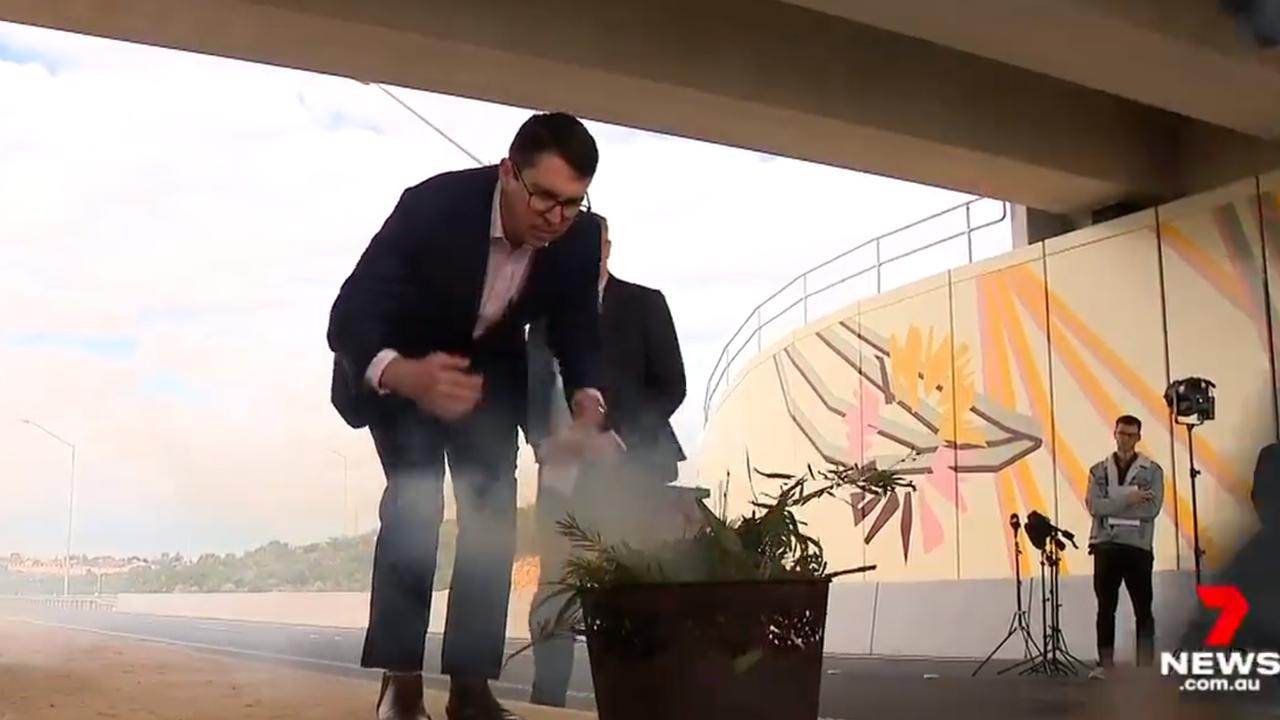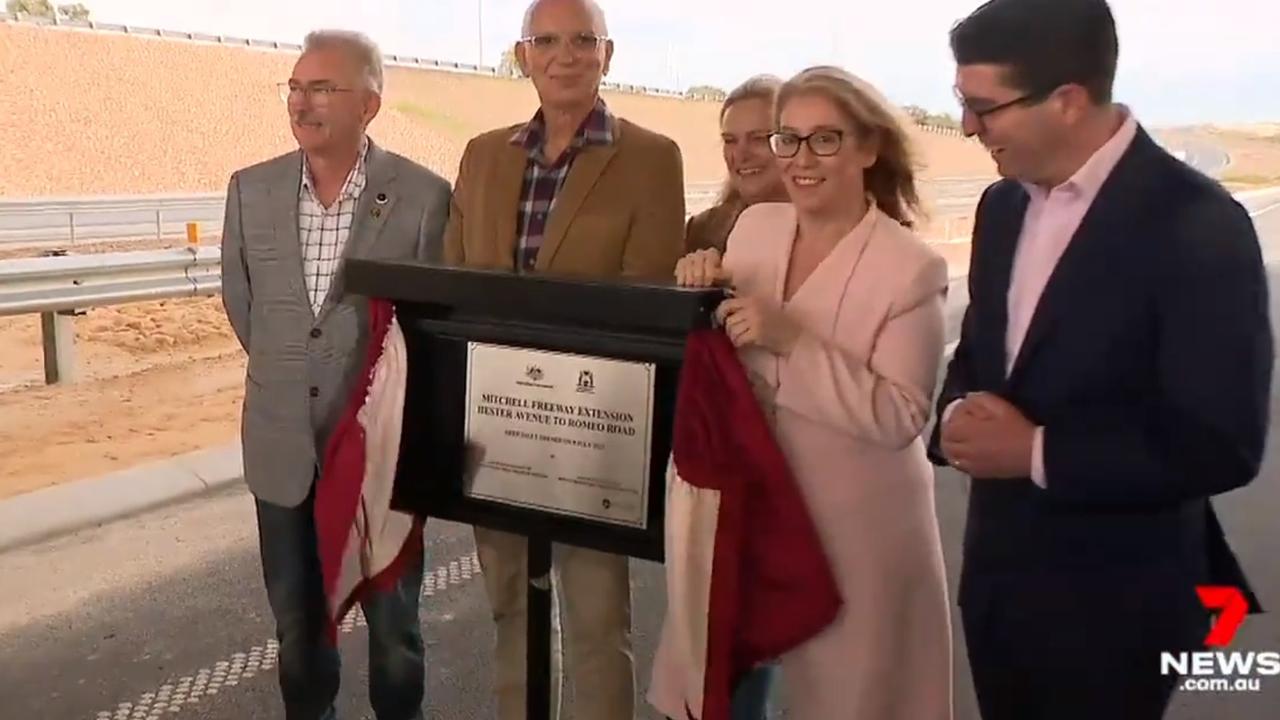Dispute between traditional owners over smoking ceremony delays Perth freeway ribbon cutting
An argument between traditional owners over who had the right to conduct the smoking ceremony has held up a Perth freeway opening.
A $232 million freeway extension opening in Perth has been held up after a heated argument broke out between two traditional owners over who had the right to conduct the smoking ceremony.
The uncomfortable scenes, which played out in front of WA Transport Minister Rita Saffioti and other officials in the middle of the new Mitchell Freeway extension in the city’s northern suburbs, were captured by 7 News on Sunday during what should have been a routine ribbon cutting event ahead of the road’s official opening on Monday.
“But I don’t think these people coming out here, thinking that you fellas could say this, say that, on this land,” an unidentified man wearing a red hoodie says in the clip, which begins mid-argument.
“I don’t need permission from you or anybody else — this is my country too,” replies the other man.

As the pair continue to argue, 7 News reporter Geofrey Parry asks Ms Saffioti what she makes of the dispute.
“It’s very interesting, because obviously there’s a lot of different Aboriginal groups with history in this area,” she says. “So, um, yeah.”
“Did you pick the wrong one for the smoking ceremony?” Parry asks.
“No, I understand that was all handled by the department,” she replies. “So anyway, we’ll work through it.”
Eventually another Aboriginal elder steps in to calm the situation.
“You’re included in this, all right?” she says to the first man.
“Well it doesn’t seem like it — nobody told us nothing,” he replies.
The opening ceremony eventually continued as planned.
It wasn’t immediately clear which Aboriginal groups were involved in the dispute.
Main Roads WA has been contacted for comment.
The city of Perth is located in the “ancient country of the Whadjuk Nyoongar people, who have been the traditional owners of the south west of Western Australia for at least 45,000 years”, the WA government says.

According to Moodjar Consultancy, a Perth-based Aboriginal cultural organisation, a smoking ceremony is a “traditional Noongar ritual used to not only cleanse and purify a specific area but it cleanses the spirit, body and soul whilst you are on Noongar Country”.
“It also helps to ward off warra wirrin — bad spirits and to bring in the blessings of the kwop wirrin — good spirits,” the group’s website explains.
“The leaves and shavings from the balga (grass tree) smolder and the smoke purifies the area and prepares for a new beginning. This ritual of purification and unity — signifies the beginning of something new. The balga tree is the life tree. It provides medicine, food, shelter warmth and healing. The smoking ceremony is a blessing while you are here on Noongar Country, to keep you safe.”
The opening of a freeway extension in our northern suburbs came to an abrupt halt when an argument broke out over who had the right to conduct the traditional smoking ceremony. @geofparry7#7NEWSpic.twitter.com/T5AJ3E3S4X
— 7NEWS Perth (@7NewsPerth) July 9, 2023
The 5.6km Mitchell Freeway to Alkimos extension, which was repeatedly delayed by Covid restrictions, connects Hester Avenue to Romeo Road to create a new north-south transport link in Perth’s northwest.
The project is designed to improve access and reduce congestion for people living in Perth’s northern suburbs including Yanchep, Butler, Alkimos and Eglinton. It includes public art on two underpasses and two bridge abutments, designed by schoolchildren, an Aboriginal artist and local Perth artists.
It comes as sweeping new Aboriginal cultural heritage laws came into effect in WA this month, imposing harsh penalties for damaging sites of traditional significance.

But following widespread backlash from farmers and landholders, the state government late last month announced it would delay compliance penalties for a year in favour of an “education-first” policy.
“I want to make it clear that for more than 50 years it has been unlawful to harm Aboriginal cultural heritage in WA — this will not change under the new Aboriginal Cultural Heritage Act,” WA Premier Roger Cook said in a statement at the time.
“We have consulted extensively with Aboriginal people and industry to find a balance that allows Aboriginal people to speak for their country and ensures that many activities continue with minimal disruption or additional burden.”
Opposition lands spokesman Neil Thomson had repeatedly called for a delay to the July 1 implementation of the new laws.

“People are worried about their future and fear being bound up in red tape which could require permits for things such as putting a new fence in, digging a dam or removing noxious vegetation,” he told WAToday.
“Farmers, pastoralists, and companies that provide services such as plumbing and civil contracting are all trying to work out the implications, as are hobby farmers around the metropolitan area that are deeply concerned about what they will be allowed to do on their land, without a permit.”
Last month, WA Farmers president John Hassell told news.com.au landowners feared the “open-ended” system could be abused.
More Coverage
“There wouldn’t be a grower in the state that doesn’t want to protect Aboriginal cultural heritage,” he said.
“The challenge we’ve got is you can see cultural heritage when it’s a burial site or meeting place, but you can’t see spiritual stuff — that is subject to change. You can’t do a survey on your place and have it marked out forever after because someone can come along later and say this is a spiritual place.”






